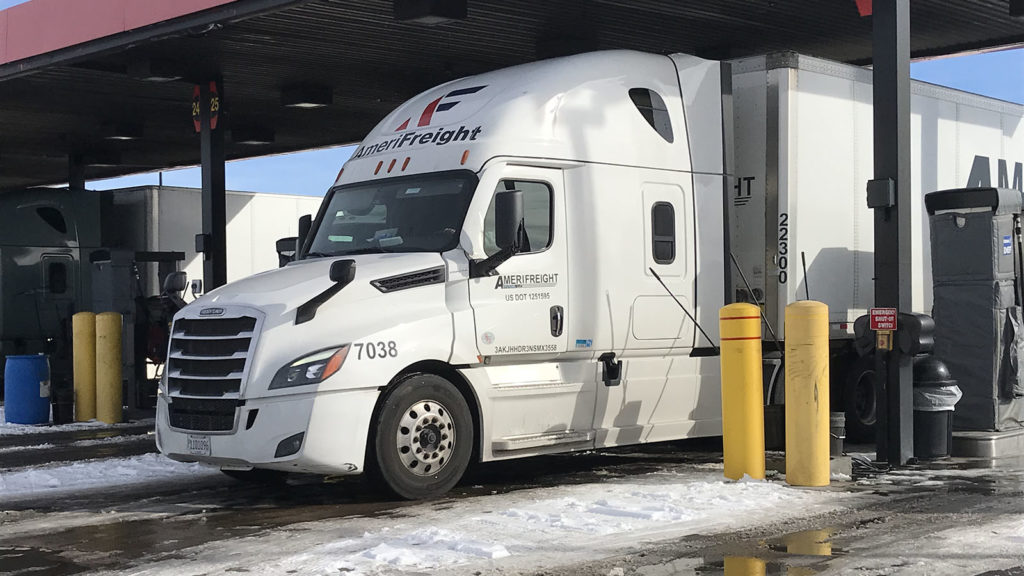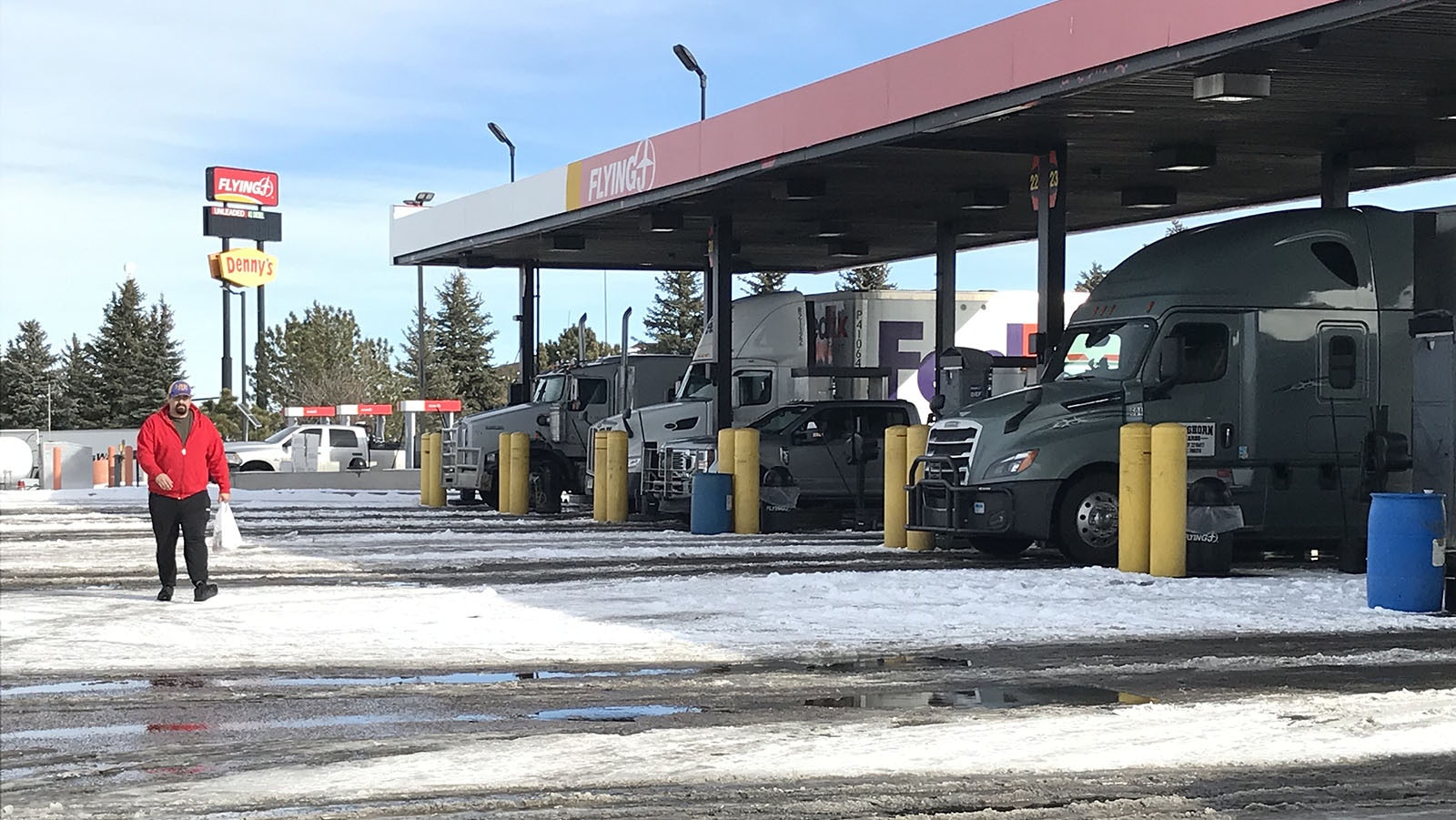The U.S. Department of Transportation is proposing a new rule that would require all commercial trucks used for interstate commerce to install tracking devices that would transmit location data and other personal information to police whenever law enforcement requests it.
Roger King, owner of Cowboy State Trucking in Kemmerer, said it’s hard enough to find drivers, and putting federal tracking devices on trucks would be one more reason for people to find other jobs.
“Nobody likes Big Brother looking at your every move,” King said in reference to the government surveillance figure in the George Orwell novel “1984.”
King said trucking companies have a financial interest to operate safely and follow the law, so he doesn’t see a need for the proposed law.

Already Highly Regulated
According to the Federal Register, the growth of the commercial vehicle industry outpaces law enforcement resources, so the tracking devices would allow law enforcement to “to make timely and informed decisions to support their mission-critical operations.”
The trucking industry is highly regulated, however, and drivers and the companies they work for already have to provide a wealth of information to regulators. This includes roadside inspections at ports of entry, and drug testing and thorough background checks of drivers.
Is It Constitutional?
The Fourth Amendment requires the government to obtain a warrant before entering a private space to gather information, and that warrant has to be based on probable cause.
Since the law would require private companies and drivers to supply private information whether or not they’re breaking the law, some question whether it would pass constitutional muster.
In its explanation for the proposed law, the U.S. Department of Transportation said that the devices will allow law enforcement to identify high-risk drivers.
Police now spend some time doing unnecessary roadside inspections, and the devices would reduce the time they spend on that by automatically letting police know if laws are being violated.
The register does note that there are grant programs to help companies install the devices on their fleets, if they’re forced to do so.
Times Change
Dan Messier, a trucker with a HAZMAT rating who hauls mainly within the state of Wyoming, said that his truck will notify the company he drives for if he brakes hard to avoid an elk crossing the road.
In one case, footage from his truck cams was used in a safety video. He’s been driving since 1986, when there was no GPS.
Over the years, the surveillance of drivers has become so commonplace that most of them are used to it being part of the job, Messier said, adding that he doesn’t think the proposed law matters that much.
“When we started this barn dance, we weren’t so into it, but things have changed,” Messier said.
When there’s a crash or infraction, drivers have to fill out an incident report, and the company will provide information to law enforcement when required.
Since Messier enters security sensitive facilities, he has a Transportation Worker Identification Credential (TWIC). It’s a lot like the TSA pre-check applications that frequent flyers can pay for to get through airport security faster.
Getting a card requires fingerprinting, physicals and background checks. A tracking device transmitting information to law enforcement wouldn’t be any more invasive, Messier said.
Violation Of Rights
Not all truckers are comfortable with government tracking devices.
Glenn MacKenzie, a trucker from Milford, Delaware, said the minute a tracker is put in his truck is the minute he quits.
“Ain’t happening to me,” MacKenzie said while fueling up at the Sinclair Truck Stop off of Interstate 25 in Cheyenne. “Let ’em try it. Only one of us will be standing if they try to attach one. And I promise it will be me.”
Norris Uttridge, a driver from the El Paso area said it’s an invasion of personal rights and if people don’t stand up and say no, “it’ll just get worse.”
“This isn’t about China. It’s much closer than that,” Uttridge told Cowboy State Daily. “Look at what’s happening in Canada. We have two options right now: on your feet or on your knees. I won’t comply.”
Kaycee Sargent, an owner/operator, said he provides all the data on his driving to the companies he drives for. If all the data on his truck were to be transmitted to law enforcement on demand, it would be a violation of his constitutional rights.
“I don’t see why they need more information than they already have,” Sargent said.





